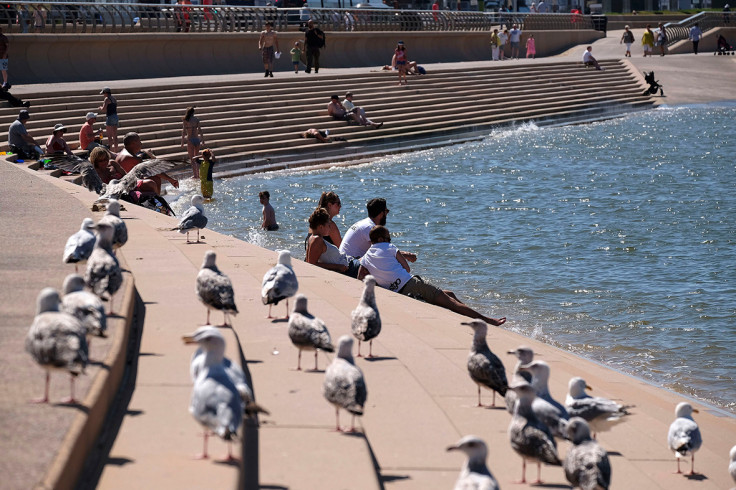Heatwave dangers: Here is why you need to be careful on Britain's hottest day of the year
The Met Office has warned of a 'Level 3' heatwave as temperatures reach more than 30C

Britain is experiencing its hottest day of the year, with temperatures reaching up to 34C in parts of the UK.
The mini-heatwave, declared a "Level 3" by the Met Office, has prompted Public Heath England to issue warnings about the risks of hot weather.
"Now the heatwave has arrived, people will likely be out and about more enjoying the summer sun," said Dr Angie Bone of PHE. "But it's important to remember that there are some people whose health suffers in hot weather. Older people, those with underlying health conditions and young children may all feel the ill-effects of heat over the coming days.
"We're urging everyone to keep an eye on those you know who may be at-risk this summer."
What are the risks of a heatwave?
The main risks posed by a heatwave are dehydration, overheating – particularly for the elderly or those with breathing problems – and heat exhaustion or heatstroke.
Dehydration occurs when the body loses more fluid than you take in, which disturbs the balance of salts and sugar in the body and alters the way it functions. Warning signs include feeling thirsty, feeling lightheaded, fatigue, urinating less than normal and darker urine.
If you are dehydrated, it is important to drink lots of water or diluted juice – which are more effective at rehydration than tea or coffee. It may be necessary to use rehydration sachets, available from supermarkets or chemists.
If symptoms continue, see your GP. If left untreated, severe dehydration can cause seizures, brain damage and even death.
What is heat exhaustion?
Heat exhaustion occurs when the body gets too hot and starts to lose water or salt, which leads to symptoms including tiredness, weakness, low blood pressure, sickness, a fast pulse and urinating less frequently.
Heatstroke occurs when the body cannot cool itself and your temperature becomes too high. Although it is less common, it is very serious – and puts a strain on the body's organs.
If someone has heat exhaustion, it is important to ensure they are in a cool place with shade and remove unnecessary clothing so the skin can cool off. You should use wet towels to cool the skin and fan them, to encourage the water to evaporate and cool down the body. You should also make sure they drink water. If there is no improvement, or they deteriorate, seek medical help.
The NHS advises: "Severe heat exhaustion or heatstroke requires hospital treatment. You should call 999 for an ambulance if: the person doesn't respond to the above treatment within 30 minutes, or the person has severe symptoms, such as a loss of consciousness, confusion or seizures."
© Copyright IBTimes 2025. All rights reserved.





















